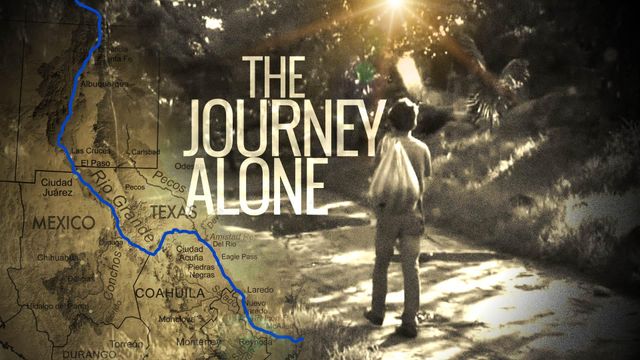'They will kill anyone': Women, children cross border to flee danger
A 2008 law designed to prevent human trafficking dictates that children from Mexico or Canada who cross the border illegally and alone should be quickly sent home. All other children are guaranteed a day in a U.S. courtroom. But until that day comes, U.S. law requires officials to provide shelter and care for the thousands of children pouring into the country.
Posted — UpdatedInstead of chasing drug smugglers, Border Patrol agents say they now find themselves surrounded by undocumented women and children throughout the day. About 75 percent of the children traveling alone come from Central America, primarily Honduras, Guatemala and El Salvador.
“Before, it was the cat and mouse. We were the cat chasing the mouse. Now, it’s the other way – the mice chasing the cats to turn themselves in,” said Border Patrol agent Steve Passement.
Passement says the cartels tell the women and children false information – that if they turn themselves in, they’ll get paperwork and be able to stay in the U.S.
“That's not true,” he said.
What is true is that, in 2008, President George W. Bush signed an anti-human trafficking law. It states most children from Mexico or Canada can be immediately deported, but an unaccompanied child from any other country should stay in the U.S. until an immigration judge decides his or her fate.
In 2012, President Barack Obama announced the Deferred Action for Childhood Arrivals program, which gives certain undocumented children temporary permission to stay in the U.S. Neither law grants immediate citizenship to children crossing the border illegally.
To get a better idea of why so many women and children are crossing illegally, WRAL News headed to the border. After hours of tracking activity, movement could be seen off in the distance. Smugglers were bringing a woman and her 2-year-old daughter across on a raft.
The woman told WRAL she feared deportation and said she couldn’t return to El Salvador. The week before she left, she said, gangs killed a 3-month-old girl in her neighborhood.
“They will kill anyone,” she said.
Days later in the same area, WRAL found Marta Alvarado and her 2-year-old daughter Brittany, from Honduras. Alvarado said she didn’t know if she would find her way through the U.S. alone. In Mexico, she said, cartels tried to kidnap her and threatened to take her into the woods and kill her. She fought back and said she got away because God was on her side.
Alvarado said she, too, had heard of the rumored permits granting children U.S. citizenship. Alvarado and the other woman WRAL saw both surrendered to the Border Patrol.
Stories like theirs are heard every day at a Catholic Charities facility in McAllen, where families just released from border patrol custody find help. The center has seen people from all over the world and of all ages.
“What these people have been through, it’s so traumatic and they just need some kindness,” said Cesar Riojas, a Catholic Charities volunteer. “We had one mother that had a baby here. They took her to the hospital … The interesting thing, the minute that baby was born, it was an American citizen.”
Volunteer Hermi Forshage registers anyone who walks through the door. She lists where they are coming from and where they are going. One woman was hoping to travel to North Carolina with her 8-year-old son and 3-year-old granddaughter to see family in Charlotte.
But immigration officials took the woman’s granddaughter away from her and labeled the child as an unaccompanied minor.
“I have a granddaughter that’s 3 years old. It breaks my heart. I can’t imagine my granddaughter being separated from her mom. I can’t,” Forshage said, crying.
Reyna de La Paz also came to the Catholic Charities to get help. She crossed the border with her two sons, hoping to get to San Francisco. She said the gangs in El Salvador wanted to kill her sons, so she decided to flee the country.
It's not just non-profit organizations responding to the crisis. The Rio Grande Valley is seeing the largest law enforcement presence it has ever seen on the border. Yet, smugglers are still bringing dozens of women and children at a time across the border.
• Credits
Copyright 2024 by Capitol Broadcasting Company. All rights reserved. This material may not be published, broadcast, rewritten or redistributed.






